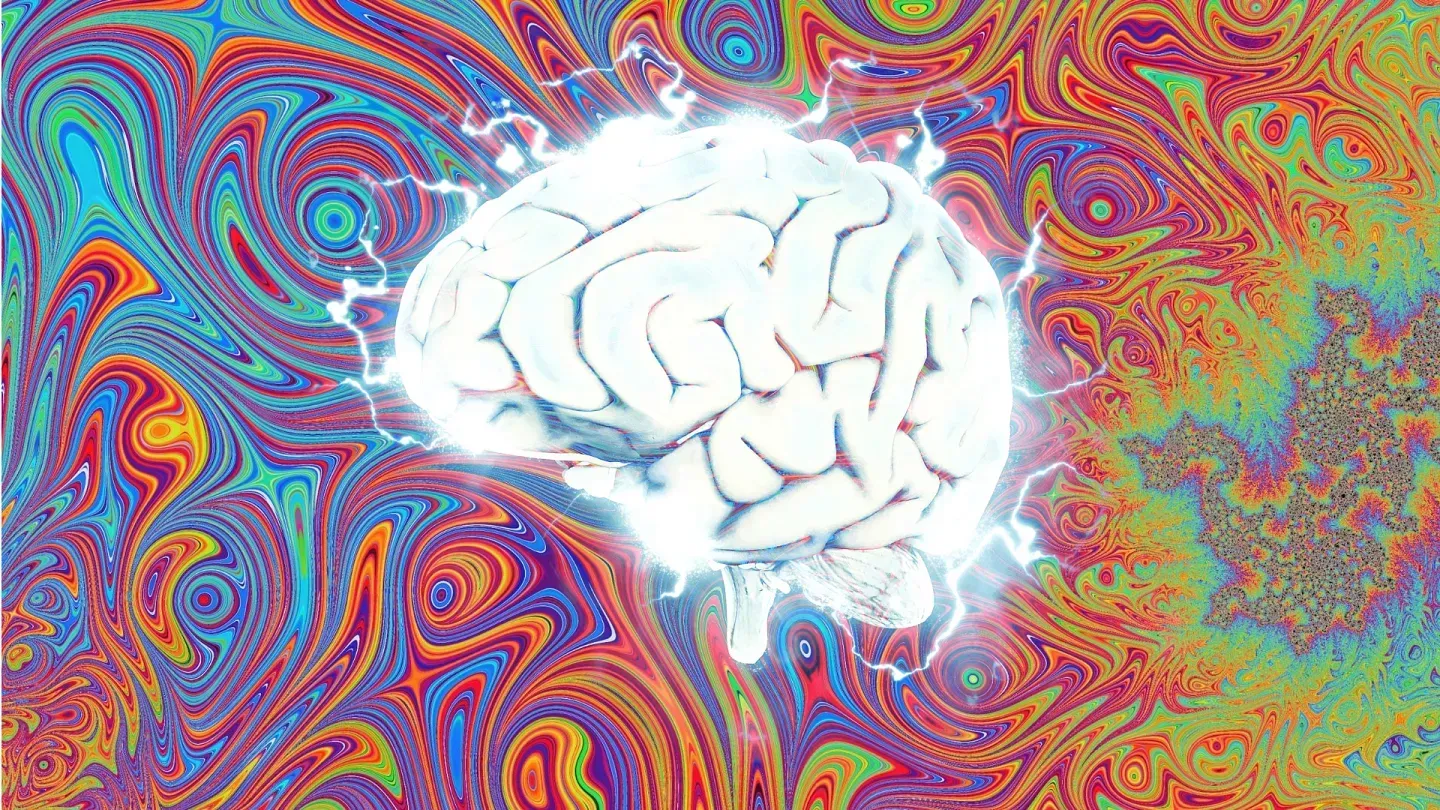The Brain's Communicators: How Protein-Rich Foods Boost Neurotransmitters
Ashley Michaud • September 16, 2023
How Protein-Rich Foods Boost Neurotransmitters
The saying "you are what you eat" holds more truth than we might realize, especially when it comes to our brain health. The foods we consume play a pivotal role in shaping our mood, cognition, and overall mental well-being. Among the essential nutrients, proteins deserve special attention for their remarkable influence on the brain's ability to communicate effectively through neurotransmitters. In this article, we will explore the intricate relationship between protein-rich foods, neurotransmitters, and their impact on our mental health.
Nutrigenomics and Proteins
Nutrigenomics is a fascinating field of study that investigates how our genes interact with the foods we eat. When it comes to proteins, this interaction is particularly vital. Different individuals have unique genetic variations that influence their protein metabolism. This means that the way our bodies process and utilize proteins can vary from person to person, highlighting the importance of personalized nutrition.
Proteins and Mood
Proteins are composed of amino acids, the building blocks of life. Amino acids are not only crucial for muscle and tissue repair but also for synthesizing neurotransmitters in the brain. Neurotransmitters are the chemical messengers that facilitate communication between brain cells. Some of t he most important neurotransmitters associated with mood regulation include serotonin, dopamine, and norepinephrine.
The Brain's Chemical Reaction to Proteins
When we consume protein-rich foods, our bodies break down the proteins into their constituent amino acids. These amino acids are then used by the brain to manufacture neurotransmitters. For instance, the amino acid tryptophan is a precursor to serotonin, a neurotransmitter known for its role in promoting feelings of happiness and well-being.
Hormones Associated with Proteins
Proteins also have a profound impact on hormone production and regulation. Hormones like insulin and glucagon help control blood sugar levels, while growth hormone influences our overall growth and development. Ensuring an adequate intake of protein is essential for maintaining hormonal balance.
Benefits of Proteins for the Human Body
- Muscle Maintenance and Growth: Proteins are vital for building and repairing muscle tissue, making them crucial for athletes and those looking to maintain a healthy body composition.
- Weight Management: Protein-rich foods can help control appetite and promote a feeling of fullness, which can aid in weight management and weight loss efforts.
- Improved Mood: As mentioned earlier, proteins play a significant role in the production of neurotransmitters that affect mood. Adequate protein intake can contribute to better emotional well-being.
- Stable Energy Levels: Protein-rich meals provide a sustained source of energy, helping to prevent energy crashes and sugar cravings.
Action Steps
- Balanced Diet: Incorporate a variety of protein sources into your diet, including both animal and plant-based options.
- Personalized Nutrition: Consider your individual genetic makeup and consult with a registered dietitian to tailor your protein intake to your specific needs.
- Meal Planning: Plan balanced meals that include protein, carbohydrates, and healthy fats to support overall health and energy levels.
Protein Sources
Animal Foods:
- Lean meats (chicken, turkey, lean beef)
- Fish (salmon, tuna, trout)
- Eggs
- Dairy products (Greek yogurt, cottage cheese)
Plant-Based Foods:
- Legumes (beans, lentils, chickpeas)
- Nuts and seeds (almonds, walnuts, chia seeds)
- Tofu and tempeh
- Quinoa
- Seitan
Sample Menu
Breakfast: Scrambled eggs with spinach and tomatoes.
Lunch: Chickpea salad with mixed greens, cucumber, and a tahini dressing.
Snack: Greek yogurt with berries and honey.
Dinner: Grilled salmon with quinoa and steamed broccoli.
Protein Requirements
Protein needs can vary depending on age, gender, and activity level:
- Children: 10-30 grams per day (varying with age)
- Women: 46-56 grams per day
- Men: 56-91 grams per day
Conclusion
Protein-rich foods are not just essential for physical health; they are also vital for maintaining optimal brain function and emotional well-being. The intricate relationship between proteins and neurotransmitters highlights the importance of a balanced diet that includes a variety of protein sources. By understanding the role of proteins in our mental health, we can make informed dietary choices that promote a happier, healthier brain.
Footnotes with References
- [1] S. Ahmed, "The Role of Nutrigenomics in Personalized Nutrition," Current Genomics, vol. 18, no. 6, pp. 525-532, 2017.
- [2] G. Fond et al., "The "Psychomicrobiotic": Targeting Microbiota in Major Psychiatric Disorders: A Systematic Review," Pathologie Biologie, vol. 66, no. 3, pp. 121-129, 2018.
- [3] M. A. R. Ferreira et al., "Shared genetic origin of asthma, hay fever and eczema elucidates allergic disease biology," Nature Genetics, vol. 49, no. 12, pp. 1752-1757, 2017.
- [4] R. D. Mattes and M. L. Dreher, "Nuts and Healthy Body Weight Maintenance Mechanisms," Asia Pacific Journal of Clinical Nutrition, vol. 17, no. S1, pp. 333-336, 2008.
- [5] A. Young, "L-Tryptophan: A Rational for Its Use as an Antidepressant," The Texas Journal of Pharmacy, vol. 35, no. 6, pp. 10-12, 1973.
- [6] D. M. Paddon-Jones and E. L. Westman, "Protein, Weight Management, and Satiety," The American Journal of Clinical Nutrition, vol. 87, no. 5, pp. 1558S-1561S, 2008.

Unlock the wisdom of ancient shamanic teachings to break free from emotional struggles and reclaim your inner peace. In this in-depth guide, explore six powerful principles that can transform your mindset, release past pain, and align you with nature’s healing energy. Discover actionable steps, rituals, and exercises to integrate these teachings into your daily life with joy and clarity. Start your journey to emotional freedom today!

Discover the profound role algae and fungi have played in shaping life on Earth, sustaining ecosystems, and enhancing human health. From nutrition and medicine to environmental restoration and consciousness expansion, these ancient organisms continue to offer us powerful benefits. Learn how to honor, use, and integrate algae and fungi into your daily life for better health, sustainability, and spiritual connection.

Psychedelics open the door to profound healing, but true transformation happens through integration. This article explores the importance of grounding after a psychedelic journey, the Ayurvedic layers of being, and practical steps to support your mind, body, and spirit. Discover why integration is your sacred responsibility and how working with an integration coach can help you embody lasting change.

Sacred tobacco, known as Rapé or Mapacho, has been used for centuries by indigenous tribes for healing, prayer, and spiritual connection. Unlike commercial tobacco, which is processed for addiction, this medicine is prepared with reverence and intention. Learn about its benefits, ceremonial use, right relationship, and how to integrate it into your spiritual practice.

Embrace the Sacred Journey of Gentle Birth: A Guide to Pain-Free, Ecstatic, and Empowering Birth Experiences
This post explores the transformative potential of gentle birth, including pain-free, ecstatic, orgasmic, freebirth, and water birth. By tapping into the wisdom of hypnobirthing, Ina May Gaskin’s techniques, and powerful affirmations, you’ll discover how to create a peaceful, empowering environment for your birth. We walk you through the stages of labor, offering a step-by-step guide to help you prepare mentally, emotionally, and physically for a calm and beautiful birth experience. Learn how to harness your body’s wisdom, embrace the sensations of labor with trust, and welcome your baby into the world in a way that is sacred and transformative.

Explore the fascinating world of DMT in this comprehensive article, where we delve into its history, effects, benefits, and the role it plays in psychedelic healing. Whether you're curious about DMT's spiritual significance, its therapeutic potential, or its powerful role in consciousness expansion, this article provides insightful information backed by scientific research and personal experiences. Learn how DMT may help in unlocking deeper states of awareness and healing, and how it fits within the broader context of natural medicine and psychedelic integration.

Discover the ultimate guide to holistic and natural diapering! Learn the history of diapering, explore eco-friendly options like cloth diapers and elimination communication, and find DIY recipes for baby wipes, rash creams, and powders. Perfect for moms looking to reduce waste, save money, and keep baby’s skin naturally healthy. Written by a second-time mom with firsthand experience, this guide is packed with tips, tricks, and inspiration for embracing sustainable diapering 🌿💚

The postpartum period is a sacred and transformative time, offering a chance to bond deeply with your baby, restore your body, and honor your spiritual journey into motherhood. From placenta rituals and cord cutting to the importance of rest and breastfeeding, this comprehensive guide explores natural practices from around the world that promote healing, connection, and empowerment. Whether you’re a first-time mom or welcoming another child, discover meaningful rituals, cultural wisdom, and practical tips to nurture yourself and your growing family. Embrace the fourth trimester with love, self-care, and support.

Finding out your baby is in a breech position late in pregnancy can be overwhelming, especially if you’re planning a home birth. But with a blend of natural techniques, trusted support, and an understanding of breech birth history, there’s hope and empowerment on this journey. 🧡
I recently faced this challenge at 35 weeks, leaving a routine visit with my midwife in tears as I learned about the medical interventions often recommended for breech positioning. But after speaking with my doula and researching natural approaches, I found a renewed sense of calm and purpose.
In this article, I share my story, a holistic guide on breech positioning, and insights into traditional methods that honor both mom and baby. From Spinning Babies techniques to affirmations and visualizations, I hope this piece brings clarity and comfort to anyone on a similar path. 🌿✨
🔗 Read more about navigating breech with confidence!

Discover the essentials of ethical and impactful psychedelic retreats in this comprehensive guide, covering key practices for retreat leaders and attendees alike. Learn about preparation, integration, and the importance of maintaining integrity in the world of plant medicine ceremonies, including mushroom, DMT, ayahuasca, iboga, and bufo retreats. With 20+ years of experience in psychedelic integration coaching, this article sheds light on the growing popularity—and challenges—facing these transformative experiences. Find guidance on due diligence, ethical considerations, and creating a truly healing, heart-centered journey that respects indigenous traditions and the sanctity of plant medicine.


